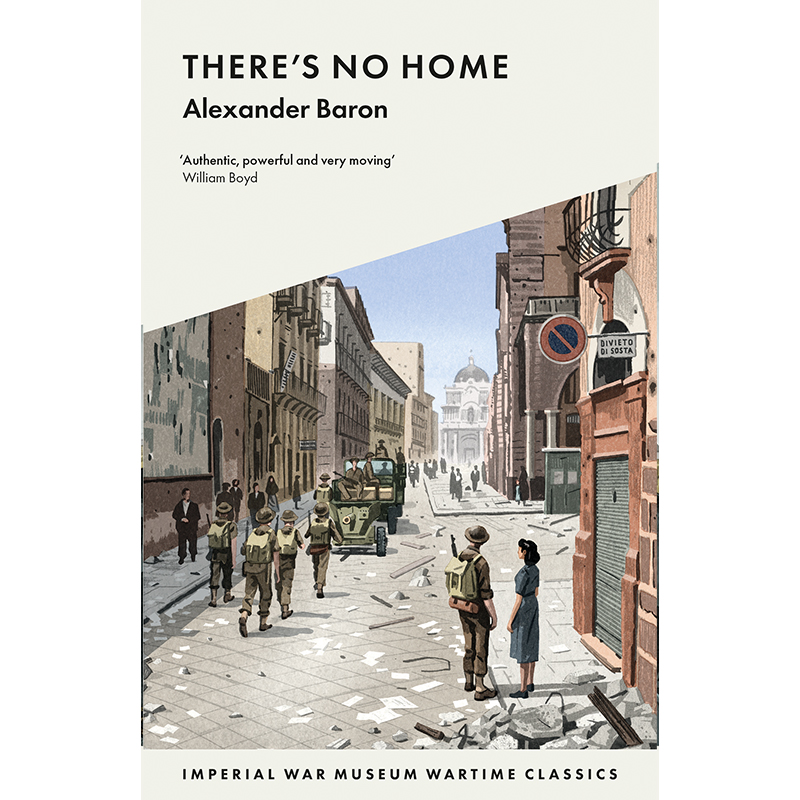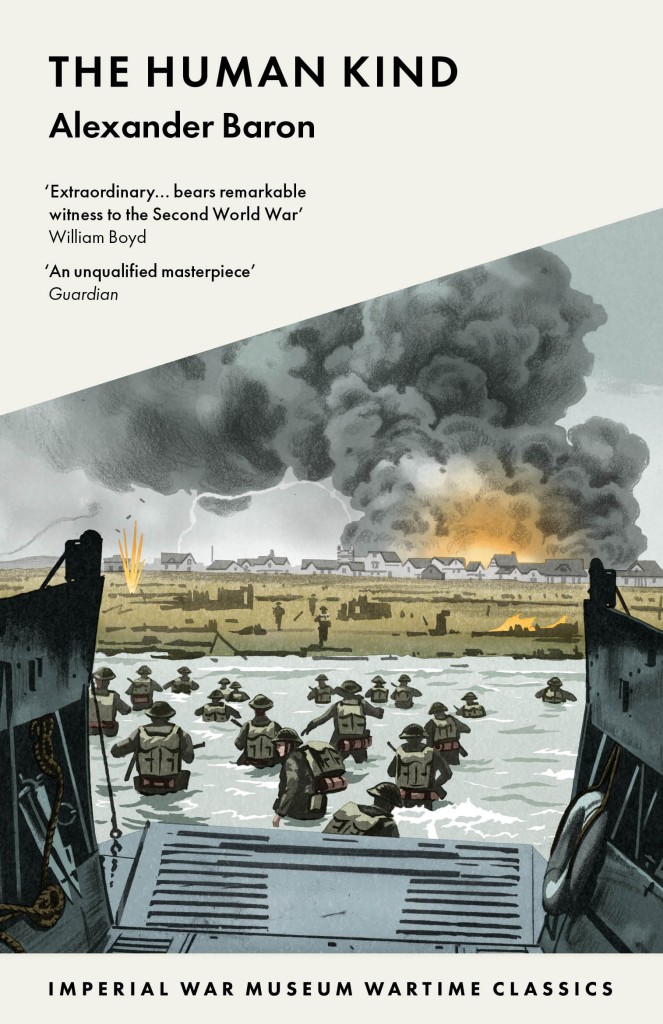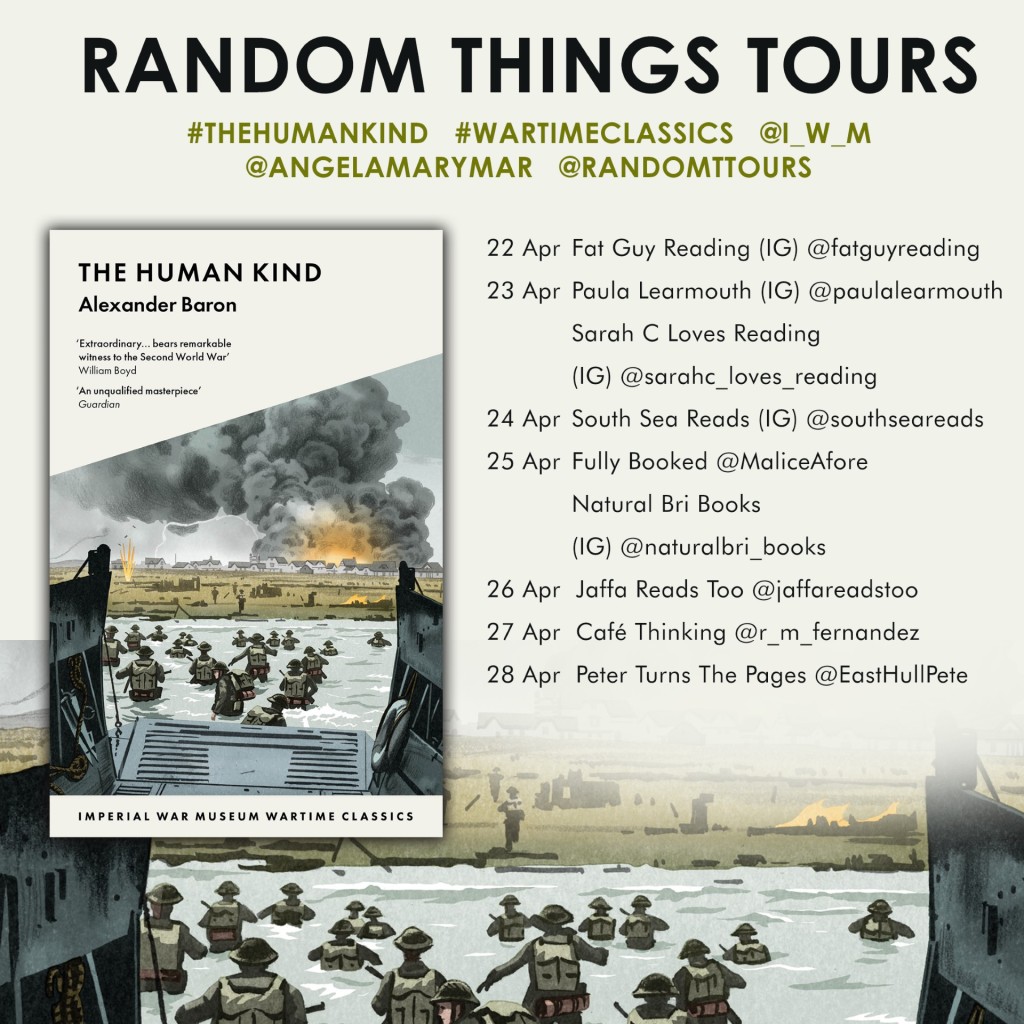The first of the series of classic Second World War novels reissued by the Imperial War Museum (IWM) was Alexander Baron’s From the City, From the Plough, an exploration of the life of an ordinary battalion in the run-up to and in the months immediately after D-Day. Now the IWM has reissued the second and third books of Baron’s ‘War Trilogy’. There’s No Home explores the experiences of a platoon stationed for several months in Catania, Sicily, while The Human Kind roams from England to Korea via Ostend, Atlantic ships and the Mediterranean. They are quite different in style and scope: There’s No Home is a single story. The Human Kind features 25 short stories and vignettes. They do quite different things. The foreword to Human explains that Baron believed that the trilogy was ‘strictly speaking not such at all, “but a sequence of works exploring the theme of people living in a world at war.” He did, however, view them as a “single body of work”.’

Recently, I’ve been reading a number of books that describe their author being displaced in alien surroundings. There’s No Home does a better job than any of these. It describes the experience of a platoon that’s been in the thick of battle, suddenly stationary in the incessant heat of a Sicily still reeling from German occupation. In Human, Baron writes of his earlier book: ‘The central story…is of a a love affair between a British soldier (Craddock) and a Sicilian girl (Graziella)…Both are married and are long separated by war from their married partners. They keep apart for some time…out of loyalty to their own ties, out of respect for each other and because of a vague unexpressed disgust for the orgy of promiscuous love-making that is going on around them.’ It’s a sensitive exploration of what war does to a community steeped in poverty and reliant on its old tradition to make sense of the present day. A theme of Baron’s writing is just how wearying war can be, and here he takes an unsentimental eye to what the women in particular need in order to survive. Alongside this, we are given access to Craddock’s conscience. Craddock in particular is a first-class lead: his inner turmoil is both great enough and shallow enough to be entirely believable. Previous Wartime Classics have focused, naturally enough, on the specific communities involved whether the D-Day battalion, Land Girls or shop workers. This is the first title to consider how different communities – with utterly different priorities – might rub up together. It also encourages us, through a decent ensemble cast, to consider matters such as duty, friendship, trust, pride and honesty.

The Human Kind is quite a different creation: it’s pithy but angry, tender yet disgusted. For example, there’s a short story that looks again at Craddock and Graziella’s relationship. We learn that part of their passion for each other was ignited because they treated an Indian soldier with humanity. Baron portrays the 1944-1945 army as angry and disillusioned, ready to desert. He is appalled by comrades who kill Italian soldiers who are trying to surrender – and is ready to admit that he, too, once thought that the anecdote that describes this incident was funny. He tells the story of one soldier who is too simple to understand what’s required of him: his comrades cover for him with the result that he’s on the D-Day beaches when he should be far from the front line. And he tells of men who come unstuck, and who have to rebuild themselves completely if they’re to have any chance of adjusting to a post war world. He tells, too, of bravery, and skill, and kindness. I read The Human Kind in a single sitting and in some ways I now regret this. Each of the stories deserves time in which to marinate. That said, whichever way you consume this volume, you’ll be left with no doubt as to Baron’s fury against the powerful, the ignorant and the cruel, and his impatience with the unthinking and foolishly naive.
Thanks to the Imperial War Museum for the review copies of both books, and to Anne Cater for the invitation to the blog tour for The Human Kind.
